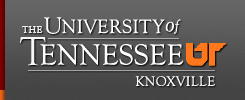Abstract
September 11, 2011 marked the tenth anniversary of the most horrific attacks in the United States. In the decade after the September 11, 2001 attacks (9/11), matters of race and religion maintained an awkwardly prominent role in American culture, with the media arguably fueling perceptions. This interdisciplinary Article’s thesis is that media elites, most of which are large corporations, threaten American democracy with xenophobic influence in an age of unmediated communication. Thus, the frequent imagery of “us” versus “them” has exasperated religious tensions between Judeo-Christian faith groups and religious minorities.
In the wake of the United States Supreme Court’s decision in Citizens United v. Federal Election Commission, corporate media entities are now able to control the news and the newsmaker, with free speech that has become very costly. Indeed, empirical studies and research show that media has misused its trusted status as the proverbial “fourth branch of government,” because of capitalism and consumerism. Moreover, in an effort to increase ratings and associated advertising dollars, media has reinforced stereotypes by marketing and essentially selling fear as part of the War on Terror. The authors seek to prove their thesis by emphasizing the historical significance of the First Amendment’s individual protections, examining deregulation and the media’s profit-making interests, and criticizing the Citizens United decision as creating an inherent conflict of interest for media corporations, considering their proven interest in “selling” news for pecuniary gain.
Recommended Citation
Augustine, Roslyn Satchel and Augustine, Jonathan C.
(2012)
"Religion, Race, & the Fourth Estate: Xenophobia in the Media Ten Years After 9/11,"
Tennessee Journal of Race, Gender, & Social Justice: Vol. 1:
Iss.
1, Article 3.
DOI: https://doi.org/10.70658/2693-3225.1001
Available at:
https://ir.law.utk.edu/rgsj/vol1/iss1/3
Included in
Civil Rights and Discrimination Commons, First Amendment Commons, Other Religion Commons, Race, Ethnicity and Post-Colonial Studies Commons
